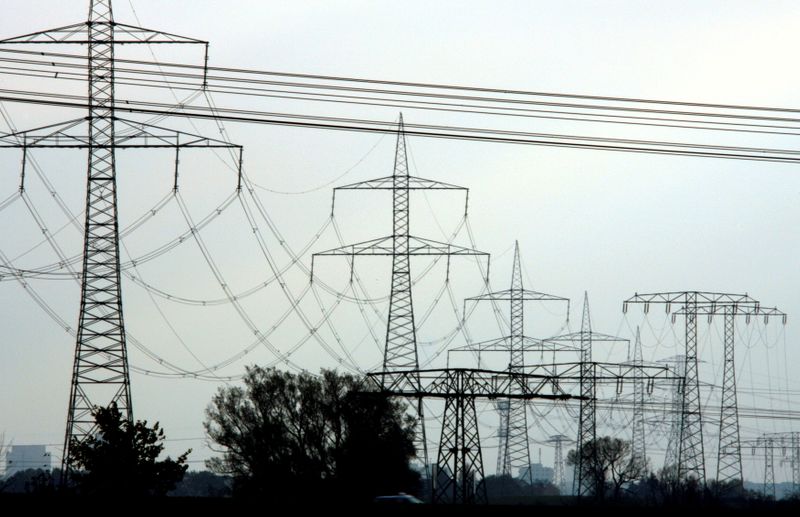By Kate Abnett
BRUSSELS (Reuters) - The European Commission published a "toolbox" of measures on Wednesday to tackle surging energy prices, which have curtailed industrial production and left European consumers facing higher heating bills as winter approaches.
The toolbox mostly confirms the measures national governments can already use to react to energy price spikes, but it also considers European Union actions, in response to some countries' calls for a bloc-wide response. EU country leaders will discuss the toolbox at a summit on Oct. 21-22.
Here's what it includes.
WHAT THE EU CAN DO
Countries disagree on whether deeper EU reforms are needed to protect against future price shocks. Spain, Italy and the Czech Republic are among those seeking EU intervention, while the Netherlands and Germany are wary of interfering in markets.
The Commission said it would "explore the possible benefits" of EU countries jointly buying gas, to form a strategic reserve. Participation would be voluntary.
Some member states have national strategic reserves, but others do not have any gas storage, and a more integrated approach could help cushion against energy price swings. The Commission will propose a revamp of EU gas market regulations in December.
The Commission will produce guidance next year to speed up permissions for new renewable energy projects. A faster shift to clean energy is the most effective long-term defence against fossil fuel price spikes, it said.
It also urged countries to use the EU's 750 billion euro COVID-19 recovery fund to invest in clean energy and renovate buildings so they use less energy.
WHAT NATIONAL GOVERNMENTS CAN DO
EU countries are largely responsible for their national energy policies, and EU rules allow them to take emergency measures to protect consumers from higher costs. Twenty of the EU's 27 member states have drawn up such measures.
Countries' options include reducing national taxes on power and fossil fuels. Taxes account for 41% of EU consumers' electricity bills on average.
Some countries impose levies on electricity bills to fund renewable energy subsidies. They could be taken off bills and instead funded from other government revenues.
Temporary government payments to help poorer households pay their bills or fund renovations that reduce their energy use are also permitted. Such schemes could be funded by the revenues governments receive from the EU carbon market.
Governments can also provide safeguards to stop households being disconnected from the grid, or allow them to delay bill payments to provide short-term relief.
HELP FOR COMPANIES
The energy price spike has prompted some industries to curtail production, with fertiliser plants - which use gas as a feedstock - made temporarily unprofitable by the surging fuel price.
Countries can offer state aid to hard-hit companies, so long as it complies with EU competition rules.
They can also help firms sign renewable power purchase agreements, to reduce their future dependence on fossil fuels. Governments could aggregate demand among small businesses for them to jointly sign such contracts.
INVESTIGATIONS
The Commission said it would investigate three other issues countries are concerned about.
First, Brussels is investigating "all allegations of possible anti-competitive commpercial conduct", following some countries' claims that Russia's Gazprom (MCX:GAZP) has used its dominant market position to push up European gas prices.
The Commission will also task EU regulators with assessing whether the EU's power market is fit to deliver the bloc's planned transition to green energy. Countries including Spain and France want to change EU electricity regulations to decouple the price of power from the cost of gas.
Finally, the Commission said the European Securities and Markets Authority will examine recent developments in the EU carbon market, although it said "there is no evidence in recent market information" to suggest financial speculation is a major price driver.
The Czech Republic and Spain have called for curbs on speculation in the carbon market, which they say has pushed the carbon price to record highs in recent months.
